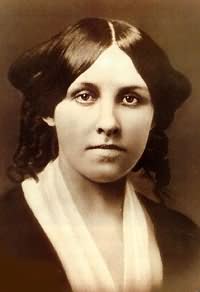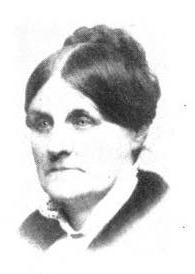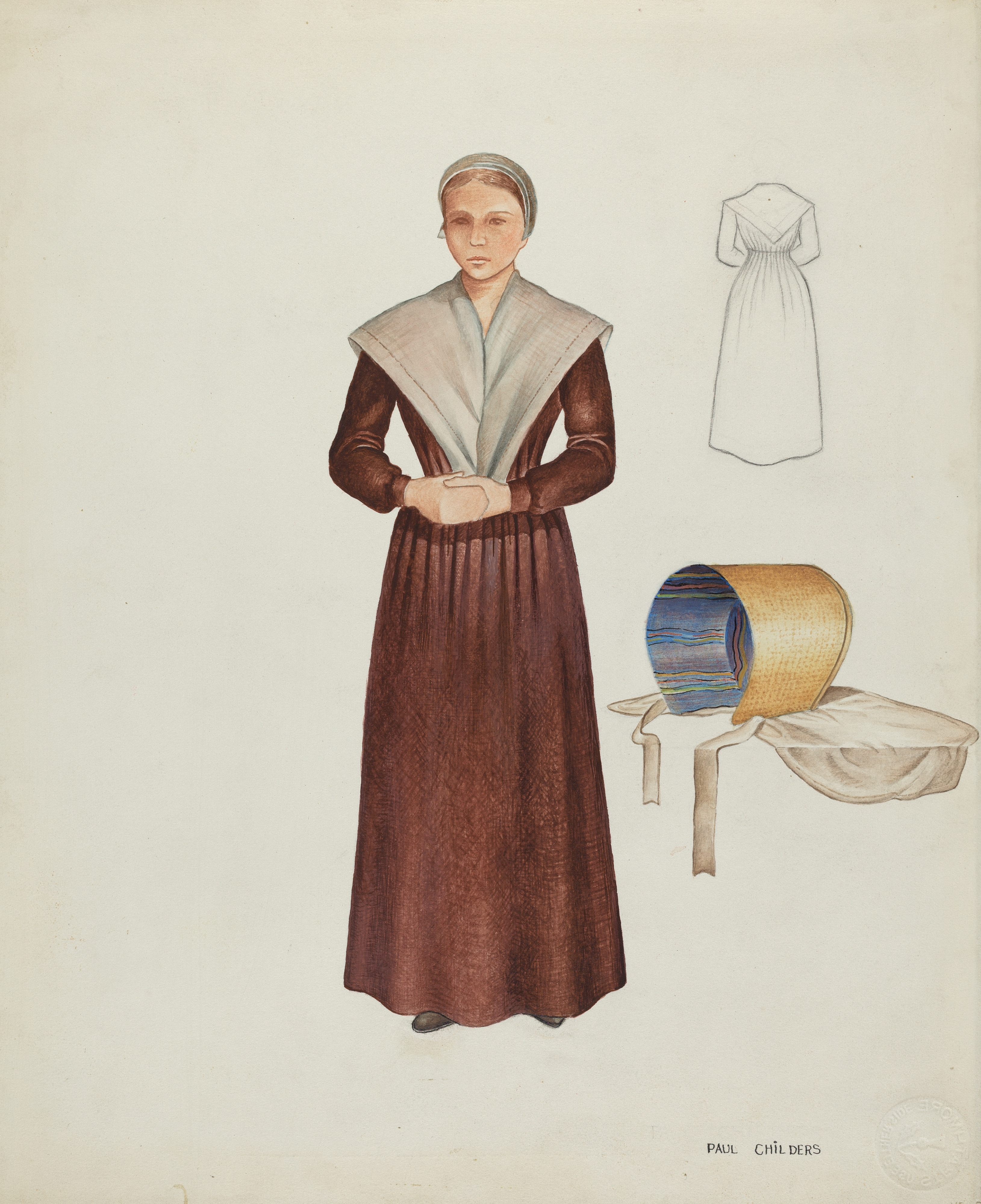|
Transcendental Wild Oats
''Transcendental Wild Oats: A Chapter from an Unwritten Romance'' is a prose satire written by Louisa May Alcott, about her family's involvement with the Transcendentalist community Fruitlands in the early 1840s. The work was first published in a New York newspaper in 1873, and reprinted in 1874, 1876, and 1915 and after. In her account, Alcott provides the real people involved with thin pseudonymous disguises. Her father Amos Bronson Alcott is "Abel Lamb," while his partner and community co-founder Charles Lane is "Timon Lion;" Abigail May Alcott, Louisa's mother and Bronson's wife, is "Sister Hope." Alcott depicts her father as dominated by his more forceful partner, and both men as feckless and impractical dreamers. The men of the community spend their time in pointless debates while Sister Hope works from dawn to dusk to maintain their existence. A crisis arises at harvest time, when the grain crop is threatened by an approaching storm. In Alcott's words, "About the time ... [...More Info...] [...Related Items...] OR: [Wikipedia] [Google] [Baidu] |
Satire
Satire is a genre of the visual, literary, and performing arts, usually in the form of fiction and less frequently non-fiction, in which vices, follies, abuses, and shortcomings are held up to ridicule, often with the intent of shaming or exposing the perceived flaws of individuals, corporations, government, or society itself into improvement. Although satire is usually meant to be humorous, its greater purpose is often constructive social criticism, using wit to draw attention to both particular and wider issues in society. A feature of satire is strong irony or sarcasm —"in satire, irony is militant", according to literary critic Northrop Frye— but parody, burlesque, exaggeration, juxtaposition, comparison, analogy, and double entendre are all frequently used in satirical speech and writing. This "militant" irony or sarcasm often professes to approve of (or at least accept as natural) the very things the satirist wishes to question. Satire is found in many a ... [...More Info...] [...Related Items...] OR: [Wikipedia] [Google] [Baidu] |
Louisa May Alcott
Louisa May Alcott (; November 29, 1832March 6, 1888) was an American novelist, short story writer, and poet best known as the author of the novel ''Little Women'' (1868) and its sequels ''Little Men'' (1871) and ''Jo's Boys'' (1886). Raised in New England by her Transcendentalism, transcendentalist parents, Abigail May and Amos Bronson Alcott, she grew up among many well-known intellectuals of the day, such as Ralph Waldo Emerson, Nathaniel Hawthorne, Henry David Thoreau, and Henry Wadsworth Longfellow. Alcott's family suffered from financial difficulties, and while she worked to help support the family from an early age, she also sought an outlet in writing. She began to receive critical success for her writing in the 1860s. Early in her career, she sometimes used pen names such as A. M. Barnard, under which she wrote lurid short stories and sensation novels for adults that focused on passion and revenge. Published in 1868, ''Little Women'' is set in the Alcott family home, Or ... [...More Info...] [...Related Items...] OR: [Wikipedia] [Google] [Baidu] |
Transcendentalism
Transcendentalism is a philosophical movement that developed in the late 1820s and 1830s in New England. "Transcendentalism is an American literary, political, and philosophical movement of the early nineteenth century, centered around Ralph Waldo Emerson." A core belief is in the inherent goodness of people and nature, and while society and its institutions have corrupted the purity of the individual, people are at their best when truly "self-reliant" and independent. Transcendentalists saw divine experience inherent in the everyday, rather than believing in a distant heaven. Transcendentalists saw physical and spiritual phenomena as part of dynamic processes rather than discrete entities. Transcendentalism is one of the first philosophical currents that emerged in the United States;Coviello, Peter. "Transcendentalism" ''The Oxford Encyclopedia of American Literature''. Oxford University Press, 2004. ''Oxford Reference Online''. Web. 23 Oct. 2011 it is therefore a key early point ... [...More Info...] [...Related Items...] OR: [Wikipedia] [Google] [Baidu] |
Fruitlands (transcendental Center)
Fruitlands was a utopian agrarian commune established in Harvard, Massachusetts, by Amos Bronson Alcott and Charles Lane in the 1840s, based on transcendentalist principles. An account of its less-than-successful activities can be found in ''Transcendental Wild Oats'' by Alcott's daughter Louisa May Alcott. Lane purchased what was known as the Wyman farm and its , which also included a dilapidated house and barn. Residents of Fruitlands ate no animal substances, drank only water, bathed in unheated water and "no artificial light would prolong dark hours or cost them the brightness of morning." Additionally, property was held communally, and no animal labor was used. The community was short-lived and lasted only seven months. It was dependent on farming, which turned out to be too difficult. The original farmhouse, along with other historic buildings from the area, is now a part of Fruitlands Museum. History Amos Bronson Alcott, a teacher and member of the New England Non- ... [...More Info...] [...Related Items...] OR: [Wikipedia] [Google] [Baidu] |
Amos Bronson Alcott
Amos Bronson Alcott (; November 29, 1799 – March 4, 1888) was an American teacher, writer, philosopher, and reformer. As an educator, Alcott pioneered new ways of interacting with young students, focusing on a conversational style, and avoided traditional punishment. He hoped to perfect the human spirit and, to that end, advocated a plant-based diet. He was also an abolitionist and an advocate for women's rights. Born in Wolcott, Connecticut in 1799, Alcott had only minimal formal schooling before attempting a career as a traveling salesman. Worried that the itinerant life might have a negative impact on his soul, he turned to teaching. His innovative methods, however, were controversial, and he rarely stayed in one place very long. His most well-known teaching position was at the Temple School in Boston. His experience there was turned into two books: ''Records of a School'' and ''Conversations with Children on the Gospels''. Alcott became friends with Ralph Waldo Emers ... [...More Info...] [...Related Items...] OR: [Wikipedia] [Google] [Baidu] |
Charles Lane (transcendentalist)
Charles Lane (1800–1870) was an English-American transcendentalist, abolitionist, and early voluntaryist. Along with Amos Bronson Alcott, he was one of the main founders of Fruitlands and a vegan. Early life Lane was born in Hackney, then east of London, and edited a financial publication, ''The London Merchant Current''. He was a disciple of James Pierrepont Greaves, a member of Alcott House at Ham Common in Surrey, and a contributor to ''The Dial''. Fruitlands Lane was an admirer of Bronson Alcott, for whom Alcott House had been named. The two met in 1842, when Alcott had traveled to England to enlist support and people for his experiment in communal living. Lane offered his support and returned to the United States with Alcott on October 21, 1842.Packer, Barbara L. ''The Transcendentalists''. Athens, Georgia: The University of Georgia Press, 2007: 148. The next May, Lane purchased the Wyman Farm in Harvard, Massachusetts, for $1800. They had moved to the farm on ... [...More Info...] [...Related Items...] OR: [Wikipedia] [Google] [Baidu] |
Abby May
Abigail "Abba" Alcott (née May; October 8, 1800 – November 25, 1877) was an American activist for several causes and one of the first paid social workers in the state of Massachusetts. She was the wife of transcendentalist Amos Bronson Alcott and mother of four daughters, including Civil War novelist Louisa May Alcott. Early life Abigail May came from a prominent New England family. On her mother's side, she was born into the families of Sewall and Quincy. Her mother, Dorothy Sewall, was the great-granddaughter of Samuel Sewall, a presiding judge of the Salem witch trials. Her father, Colonel Joseph May, was a lauded Unitarian layman. As a child she did not regularly attend a formal school. Rather, she was educated in history, languages, and sciences by her tutor Abigail Allyn in Duxbury, Massachusetts. She was introduced to her future husband, Amos Bronson Alcott in Brooklyn, Connecticut. Abigail May later applied for an assistant position in Alcott's school in Boston. T ... [...More Info...] [...Related Items...] OR: [Wikipedia] [Google] [Baidu] |
Over-soul
"The Over-Soul" is an essay by Ralph Waldo Emerson, first published in 1841. With the human soul as its overriding subject, several general themes are treated: (1) the existence and nature of the human soul; (2) the relationship between the soul and the personal ego; (3) the relationship of one human soul to another; and (4) the relationship of the human soul to God. Influence of Eastern religions, including Vedantism, is plainly evident, but the essay also develops ideas long present in the Western tradition, e.g., in the works of Plato, Plutarch, and Neoplatonists like Plotinus and Proclus – all of whose writings Emerson read extensively throughout his career – and Emanuel Swedenborg. The essay attempts no systematic doctrine, but rather serves as a work of art, something like poetry. Its virtue is in personal insights of the author and the lofty manner of their presentation. Emerson wishes to exhort and direct the reader to an awakening of similar thoughts or sentiments ... [...More Info...] [...Related Items...] OR: [Wikipedia] [Google] [Baidu] |
Shakers
The United Society of Believers in Christ's Second Appearing, more commonly known as the Shakers, are a Millenarianism, millenarian Restorationism, restorationist Christianity, Christian sect founded in England and then organized in the United States in the 1780s. They were initially known as "Shaking Quakers" because of their ecstatic behavior during worship services. Espousing Egalitarianism, egalitarian ideals, women took on spiritual leadership roles alongside men, including founding leaders such as Jane Wardley, Ann Lee, and Lucy Wright. The Shakers emigrated from England and settled in Revolutionary Thirteen Colonies, colonial America, with an initial settlement at Watervliet Shaker Historic District, Watervliet, New York (present-day Colonie, New York, Colonie), in 1774. They practice a Celibacy, celibate and Intentional community, communal utopian lifestyle, pacifism, uniform Charismatic Christianity, charismatic worship, and their model of Gender equality, equality of ... [...More Info...] [...Related Items...] OR: [Wikipedia] [Google] [Baidu] |
A Story Of Experience
A, or a, is the first letter and the first vowel of the Latin alphabet, used in the modern English alphabet, the alphabets of other western European languages and others worldwide. Its name in English is ''a'' (pronounced ), plural ''aes''. It is similar in shape to the Ancient Greek letter alpha, from which it derives. The uppercase version consists of the two slanting sides of a triangle, crossed in the middle by a horizontal bar. The lowercase version can be written in two forms: the double-storey a and single-storey ɑ. The latter is commonly used in handwriting and fonts based on it, especially fonts intended to be read by children, and is also found in italic type. In English grammar, " a", and its variant " an", are indefinite articles. History The earliest certain ancestor of "A" is aleph (also written 'aleph), the first letter of the Phoenician alphabet, which consisted entirely of consonants (for that reason, it is also called an abjad to distinguis ... [...More Info...] [...Related Items...] OR: [Wikipedia] [Google] [Baidu] |
Satirical Works
Satire is a genre of the visual, literary, and performing arts, usually in the form of fiction and less frequently non-fiction, in which vices, follies, abuses, and shortcomings are held up to ridicule, often with the intent of shaming or exposing the perceived flaws of individuals, corporations, government, or society itself into improvement. Although satire is usually meant to be humorous, its greater purpose is often constructive social criticism, using wit to draw attention to both particular and wider issues in society. A feature of satire is strong irony or sarcasm —"in satire, irony is militant", according to literary critic Northrop Frye— but parody, burlesque, exaggeration, juxtaposition, comparison, analogy, and double entendre are all frequently used in satirical speech and writing. This "militant" irony or sarcasm often professes to approve of (or at least accept as natural) the very things the satirist wishes to question. Satire is found in many artistic ... [...More Info...] [...Related Items...] OR: [Wikipedia] [Google] [Baidu] |
Literary Autobiographies
Literature is any collection of written work, but it is also used more narrowly for writings specifically considered to be an art form, especially prose fiction, drama, and poetry. In recent centuries, the definition has expanded to include oral literature, much of which has been transcribed. Literature is a method of recording, preserving, and transmitting knowledge and entertainment, and can also have a social, psychological, spiritual, or political role. Literature, as an art form, can also include works in various non-fiction genres, such as biography, diaries, memoir, letters, and the essay. Within its broad definition, literature includes non-fictional books, articles or other printed information on a particular subject.''OED'' Etymologically, the term derives from Latin ''literatura/litteratura'' "learning, a writing, grammar," originally "writing formed with letters," from ''litera/littera'' "letter". In spite of this, the term has also been applied to spoken or sun ... [...More Info...] [...Related Items...] OR: [Wikipedia] [Google] [Baidu] |








